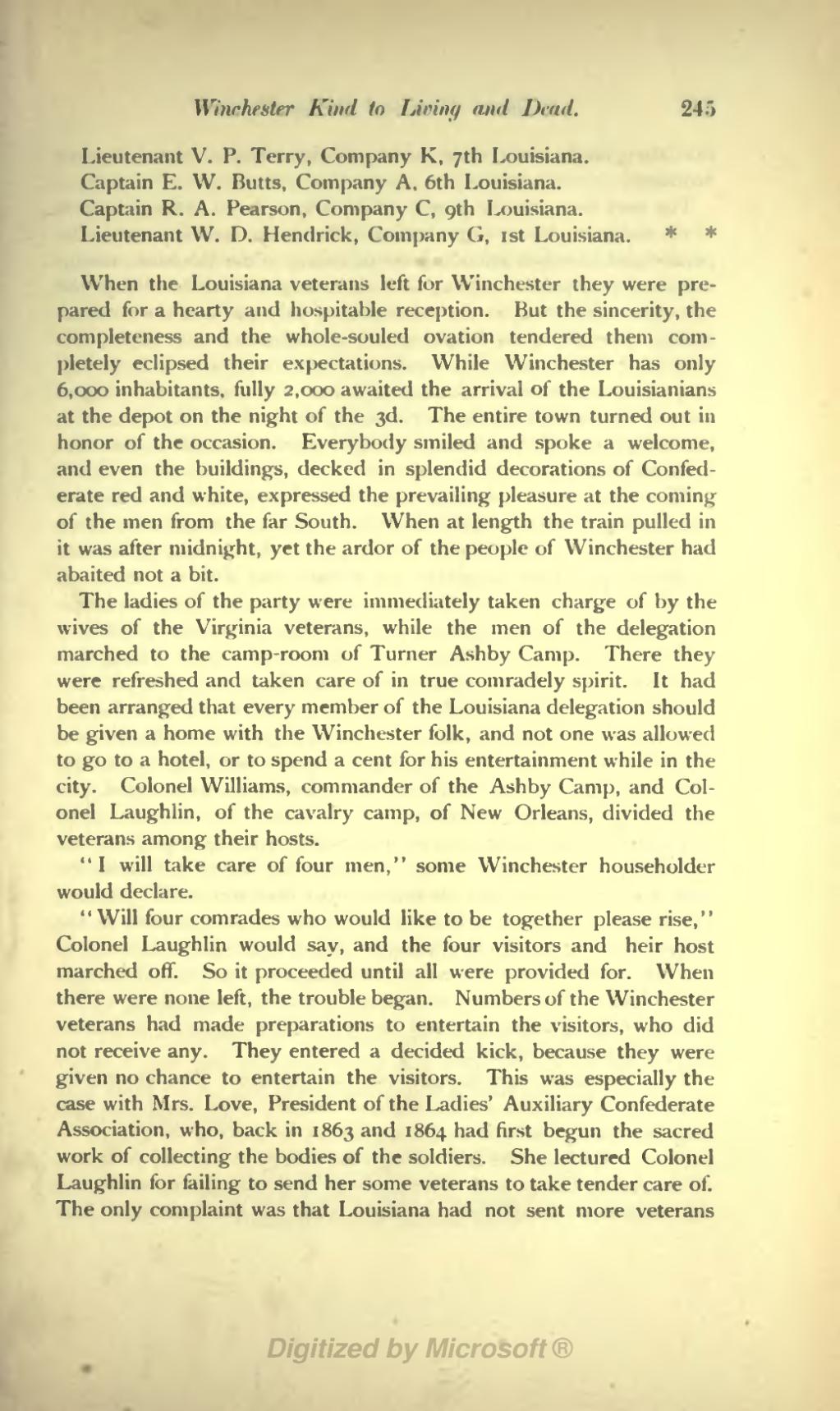_') .
Lieutenant V. P. Terry, Company K, yth Louisiana.
Captain 1.. W. Butts, Company A. 6th Louisiana.
Captain R. A. Pearson, Company C, gth Louisiana.
Lieutenant W. D. Hendrick, Company G, ist Louisiana. * *
When the Louisiana veterans left for Winclu-sttT they were pre- pared for a hearty and hospitable reception. But the sincerity, the completeness and the whole-souled ovation tendered them com- pletely eclipsed their expectations. While Winchester has only 6,000 inhabitants, fully 2,000 awaited the arrival of the Louisianians at the depot on the night of the 3d. The entire town turned out in honor of the occasion. Everybody smiled and spoke a welcome, and even the buildings, decked in splendid decorations of Confed- erate red and white, expressed the prevailing pleasure at the coming of the men from the far South. When at length the train pulled in it was after midnight, yet the ardor of the people of Winchester had abaited not a bit.
The ladies of the party were immediately taken charge of by the wives of the Virginia veterans, while the men of the delegation marched to the camp-room of Turner Ashby Camp. There they were refreshed and taken care of in true comradely spirit. It had been arranged that every member of the Louisiana delegation should be given a home with the Winchester folk, and not one was allowed to go to a hotel, or to spend a cent for his entertainment while in the city. Colonel Williams, commander of the Ashby Camp, and Col- onel Laughlin, of the cavalry camp, of New Orleans, divided the veterans among their hosts.
"I will take care of four men," some Winchester householder would declare.
1 ' Will four comrades who would like to be together please rise, ' ' Colonel Laughlin would say, and the four visitors and heir host marched off. So it proceeded until all were provided for. When there were none left, the trouble began. Numbers of the Winchester veterans had made preparations to entertain the visitors, who did not receive any. They entered a decided kick, because they were given no chance to entertain the visitors. This was especially the case with Mrs. Love, President of the Ladies' Auxiliary Confederate Association, who, back in 1863 and 1864 had first begun the sacred work of collecting the bodies of the soldiers. She lectured Colonel Laughlin for failing to send her some veterans to take tender care of. The only complaint was that Louisiana had not sent more veterans
